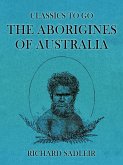In "Among Cannibals," Carl Lumholtz offers a captivating ethnographic account of his extensive travels through the remote reaches of the Australian hinterland and the cultures he encountered there. Written in an engaging narrative style that combines personal anecdotes with rigorous observation, Lumholtz's work serves as both a travelogue and a poignant exploration of indigenous customs and traditions. The book is situated in the late 19th century, a period marked by European fascination with 'exotic' cultures, yet Lumholtz approaches his subject matter with a unique blend of empathy and analytical rigor, shedding light on the complexities of the societies he studied. Carl Lumholtz, a Norwegian explorer and anthropologist, dedicated his life to understanding and documenting indigenous peoples across the globe. Influenced by his background in natural history and a profound respect for cultural diversity, Lumholtz embarked on his journey to Australia to explore regions largely untouched by Western influence. His scholarly interests and firsthand experiences in anthropology and botany afford him a distinctive voice as he reflects on the life, rites, and rituals of the indigenous tribes he encountered, particularly the infamous cannibals. "Among Cannibals" stands as a remarkable testament to the spirit of exploration and the quest for understanding human diversity. For readers intrigued by anthropology, travel literature, or the complexities of cross-cultural encounters, Lumholtz's book is indispensable. It not only delivers a vivid picturing of Australian tribal life but also invites readers to reflect on larger themes of culture, identity, and human connection.
Dieser Download kann aus rechtlichen Gründen nur mit Rechnungsadresse in A, B, BG, CY, CZ, D, DK, EW, E, FIN, F, GR, HR, H, IRL, I, LT, L, LR, M, NL, PL, P, R, S, SLO, SK ausgeliefert werden.









